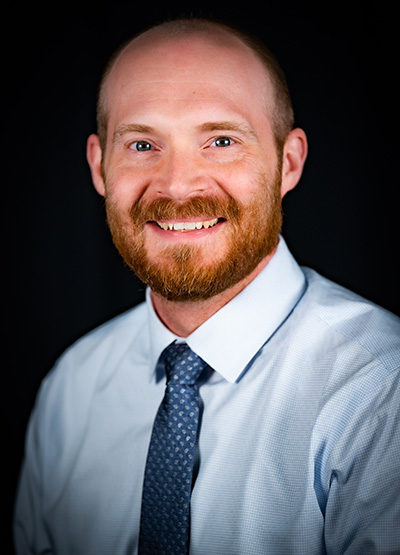COVID-19 and a Mother's Love: The Healing Power of Family
By: Matthew C. Miles, MD, MEd, FCCP
September 21, 2020
The past 6 months stretch long in my memory—a byproduct of the unusually high number of powerful experiences that were concentrated in such a short period of time. One of these experiences showed me the power of a mother’s love in a unique and special way.
Our ICU team met this young man, briefly at first, after his ER presentation with severe COVID-19 ARDS and an acute myocardial infarction. Within 24 hours, he was cannulated for extracorporeal membrane oxygenation (ECMO) and spent the next 3 weeks under the expert care of our ECMO service. My memory begins later, after his decannulation and return to the medical ICU, where I assumed his care one Monday.
Roughly 5 weeks into his hospital stay, our community was in the early and very uncertain days of our own COVID-19 surge. Like many other institutions, we had more restricted hospital visitation than at any previous time. No ICU visitors were allowed except for clear end-of-life situations, which no one wanted to admit was possible for a patient so young and who so far had survived such a horrible course. From outside his room, we monitored and adjusted his ventilator, dialed in IV infusions, and sent our thoughts and prayers through the large glass doors. Our dedicated team regularly donned the necessary PPE to provide brief examinations, episodes of personal care, and reassurance—but at an order of magnitude less often than was typical pre-COVID.
During this time, recognizing the challenges of good family communication was easy—overcoming them was not. Each day, every family received at least two phone call updates: one from the physician and one from the bedside nurse. Consistent refrains echoed in the strangely empty halls: “Yes, I’ll tell them you love them.” “Yes, it is tough to be apart.” Our team comforted one another as we willingly took on the additional burden of being surrogate family members in ways we had never experienced.
He was not improving. After so many weeks, he continued to require high levels of PEEP and Fio2 to maintain oxygenation. With hushed tones, we invoked “fibroproliferative” and “refractory”—words we all fear in association with ARDS. On our daily phone calls, his mother’s instincts became more pressing: “Just let me see my baby. He’ll get better if I can just be with him.” I know the pain that we felt for them was only a shadow of the pain they were living. We had to act.
A group of physicians from the ICU and palliative care escalated the dialogue with infection prevention and hospital administration. In a cooperative safety-first and patient-first spirit, we developed a strategy to provide his mother with the necessary PPE and an extra staff member to serve as a protective escort during her visit. That weekend, she was able to spend time at her son’s bedside, sharing her earnest faith and prayers in person with him for the first time in 40 days.
In retrospect, I see this as the turning point in his recovery. Though some tense moments still awaited, things began to improve from that moment on. It’s not possible to express the way our team felt when, 3 months after his arrival, he walked out of the hospital under his own power or, 1 month later, when he was sharing his story with our community and encouraging everyone who was struggling to cope with COVID-19.
I wish things were different. I wish that this coronavirus had not come into our world. I wish that so many people had not suffered so mightily because of this illness and the necessary steps toward its cure. Even so, I am encouraged by the great resolve shown by patients, families, colleagues, and friends. We always knew that the presence of loved ones was a healing force for our patients. This pandemic has brought that reality into sharp focus and, in a paradoxical way, delivered an enduring gift. May we never take for granted the healing power found in the love of family.

Matthew C. Miles, MD, MEd, FCCP, is an Associate Professor of Pulmonary and Critical Care Medicine at Wake Forest Baptist Health, Director of the Wake Forest Pulmonary and Critical Care Fellowship program, and Co-Director of the pulmonary block for preclinical medical students at Wake Forest School of Medicine. Dr. Miles currently serves as Chair of CHEST’s Training and Transitions Committee and as a member of the Education and Clinical Practice Editorial Board for the journal CHEST®. His scholarly interests include implementation and effectiveness of educational curricula, clinical quality improvement through education, and creating resources for educators in pulmonary and critical care medicine. His clinical interests are in general pulmonary and critical care medicine, advanced diagnostic bronchoscopy, and interstitial lung disease.